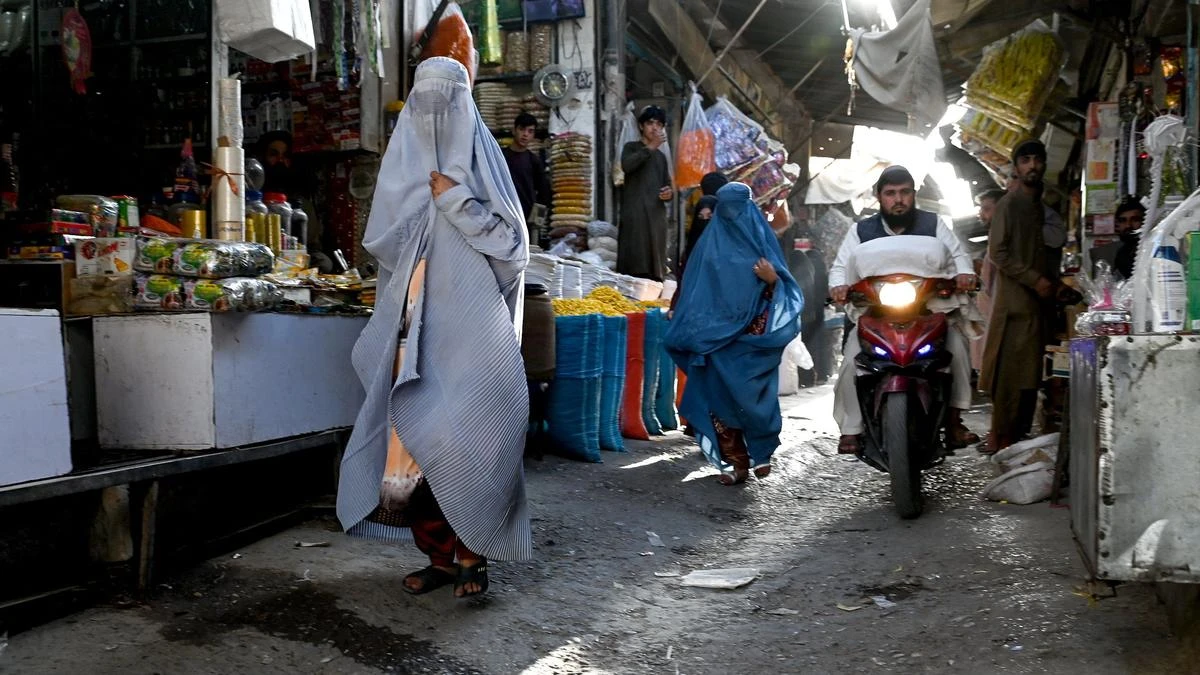The UN mission in Afghanistan said on Sunday it was "concerned" about a morality law recently ratified by the Taliban authorities, criticising in particular restrictions on women.
The Taliban authorities on Wednesday announced the codification of a law with 35 articles detailing wide-ranging behaviour and lifestyle restrictions based on their strict interpretation of Islamic law.
The law sets out graduated punishments for non-compliance -- from verbal warnings to threats, fines and detentions of varying lengths -- imposed by the morality police under the Ministry for the Propagation of Virtue and the Prevention of Vice.
"It is a distressing vision for Afghanistan's future, where moral inspectors have discretionary powers to threaten and detain anyone based on broad and sometimes vague lists of infractions," said Roza Otunbayeva, head of the UN Assistance Mission in Afghanistan (UNAMA).
"After decades of war and in the midst of a terrible humanitarian crisis, the Afghan people deserve much better than being threatened or jailed if they happen to be late for prayers, glance at a member of the opposite sex who is not a family member, or possess a photo of a loved one," Otunbayeva said.
Many components of the law have already been informally in place since the Taliban returned to power in August 2021, and it remained unclear if their formal codification would lead to stricter enforcement.
Women have borne the brunt of restrictions the UN has labelled "gender apartheid", which have pushed them from public life.
Otunbayeva said the law "extends the already intolerable restrictions on the rights of Afghan women and girls, with even the sound of a female voice outside the home apparently deemed a moral violation".
The law says women must cover their faces and bodies if they leave the house, as well as ensure their voices are not heard.
The UN also expressed concern over restrictions on religious and press freedoms in the law, which stipulates media must not publish "content hostile to Sharia law and religion" or "that shows living beings".
However, it said there were positive articles in the law, including those banning mistreatment of orphans and "bacha bazi", or "boy play", where older men force boys to dress up as girls and sexually exploit them.


